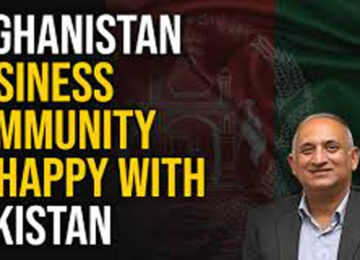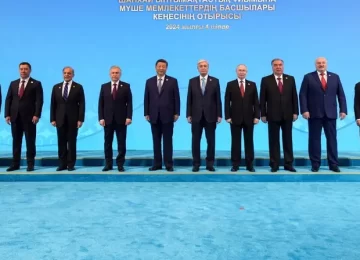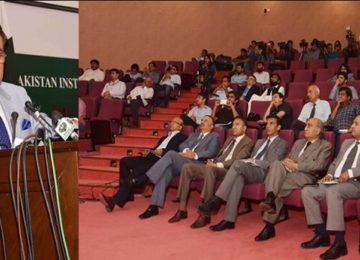Another humanitarian crisis is unfolding in Pakistan. A massive witch-hunt is currently underway, resulting in a negative public perception of the country. The target are the nearly 850,000 Afghans with Citizenship Cards (ACC) currently residing in Pakistan. As the March 31 deadline for their departure from Pakistan approaches, police raids on student hostels, residential areas and guest houses, suspected of housing ACC holders or those with expired visas, have intensified.
The deadline (for undocumented Afghans) serves as a broad net that officials use to apprehend every individual they suspect as an illegal alien. In the process, they cause more harm than good to the plan, despite its well-intentioned nature.
Numerous stories of harassment, detentions and deportations, including of girls studying here, have circulated. Pakistanis considered influential are inundated with requests for assistance, but officials’ propensity to exploit these opportunities for personal gain often overshadows contacts and recommendations.
The government asserts that adequate arrangements have been made for food and health facilities for the returnees.
Media reports indicate that nearly 10 educational institutions and medical clinics operated by or for Afghan refugees in and around Peshawar have been closed, while dozens more Afghan educational institutions and doctors face imminent closure by March 31. All educators, businesses and doctors in Peshawar and elsewhere in the Khyber-Pakhtunkhwa province have been notified of the finality of the decision.
The expulsion deadline has undoubtedly strained relations between the two governments and caused significant distress among Afghans who have resided here for decades. Even well-connected professionals, such as doctors, educators and businessmen, have fallen victim to the actions of police and officials as part of this campaign.
Despite requests from Kabul to implement this exercise gradually and protect the dignity of Afghan refugees, Pakistan remains steadfast in its pursuit of the plan.
What is concerning, however, is how the orders from Islamabad are executed. Many Afghans with relationships and business connections here also become victims of such campaigns.
Even more worrisome and distressing is the general sentiment towards Afghan refugees and those residing here on temporary visas. The majority of responses to my articles and YouTube podcasts on this issue are negative, with nearly all expressing a desire for Afghans to depart. Some even have advised me to relocate to Afghanistan.
The Pakistan diaspora in Europe and the Americas also frequently express their “thanklessness” towards Afghans. Hardly a single Afghan speaks positively of our country. When I attempt to advocate for compassion towards the residents of a country that has endured a state of war for over four decades, they often ask why I favour them.
This negative sentiment originates from narratives propagated for decades in both Kabul and Islamabad. The Karzai and Ghani governments consistently portrayed Pakistan as the “near-enemy” responsible for all the ills of Afghanistan. This narrative deeply resonated with the hearts and minds of many Afghans, regardless of their well-being within Pakistan. When Rashid Khan, the Afghan cricket team captain born and raised in Peshawar, expressed security concerns in Pakistan before the recently held Champions Trophy, it also exposed the politically motivated negative sentiment.
Even the current Afghan rulers tend to deflect blame onto Pakistan, despite repeated requests for them to rein in Ghazni and Nimroz-based groups such as TTP and BLA, which are responsible for the recent string of terrorist attacks across Khyber-Pakhtunkhwa and Balochistan.
From the perspective of Islamabad and Rawalpindi, Afghanistan is viewed through the lens of patronage, a sense of superiority vis-à-vis a smaller neighbour. The fact that Pakistan has suffered the most among its neighbouring countries yet receives the most criticism hardly receives international recognition.
A shortsighted approach — characterised by patronising behaviour, a trade and transit policy riddled with irrational measures, knee-jerk reactions to minor border incidents and a poor communications strategy — has effectively negated the positive contributions Pakistan has made to Afghanistan. Deficient sensitivity to the tribal-conservative nature of Afghan society is another significant flaw. However, it is important to acknowledge that such behaviour is not unique to Pakistan but is a common practice among nations seeking to safeguard their interests.
Considering the broader context, it is time to adopt a different perspective on the issue. Any confidence-building measures (CBMs) or concessions to Afghans or their government are more advantageous to Pakistan than to Afghanistan.
Pakistan is a significantly larger, more functional and resourceful country. Similarly, substantial benefits can be derived from magnanimity and a peaceful relationship with its smaller, conflict-affected neighbour.
It is imperative that we reconsider our approach to dealing with a predominantly tribal society beset by political and economic crises. In the long term, soft power proves to be more effective than hard power. Pakistani ruling elites must prioritise the development and expansion of the country’s soft power as an inherent leverage and avoid “harden the state” mantra.
Equally compelling for Afghans at large is to stop questioning the sanctity of the internationally recognised Pak-Afghan border. It is no more an “imaginary line” but a divide that requires visas for citizens of both countries to cross. There is no point in harping on a narrative rooted in the past. It only prevents forward movement in the bilateral relations.
AUTHOR

Imtiaz Gul is the Executive Director of the Center for Research and Security Studies (CRSS). He is a political analyst on national and regional affairs. He regularly appears as an expert/analyst on Pakistani and foreign TV channels, as well as the Doha-based Al-Jazeera English/Arabic TV channel, ABC News Australia, for commentary on China, Afghanistan, and militancy.








